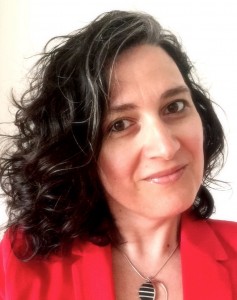
My first Internet Technologies department for University Business, “The Power of Podcasts,” was published in February 2006. Podcasting was worth covering for higher education long before the podcast “Serial” became a worldwide phenomenon in 2014 with millions of listeners, or the podcast studio Gimlet Media was acquired by Spotify for more than $200 million earlier this year.
As iPods—and, not long after, iPhones—were capturing ears, hearts and minds on campuses, podcasting was perceived in higher education as the next big (hyped) thing in learning, communication and marketing.
Yet, when widespread broadband internet finally became a reality, this interest for audio faded away in all the noise around something shinier, more visual and always evolving: online, mobile, live, social, personal and ephemeral videos.
Fast forward to today and it’s undeniable that podcasting has entered a renaissance of sorts in higher ed, illustrating how digital technology can be as cyclical as anything else. Fueled by the need to teach artificial intelligence-based devices to talk the way humans have always learned—by listening—audio content has received increasingly special treatment from the digital players of Silicon Valley. This has also resulted in a gold rush on the smart speaker market with the goal of putting one of these voice-activated connected AI-based talking boxes in every home.
Growing market
The “Smart Audio Report: Spring 2019” (UBmag.me/sar) by Edison Research and NPR reveals that 53 million Americans (21%) now own smart speakers, and 55% listen more to audio content every day as a result. Add to this the digital overload everyone experiences in front of a screen, and it’s easy to understand why 32% of Americans (and 40% of 12- to 24-year-olds) listen to podcasts every month, according to a recent Edison Research survey (UBmag.me/tpc19).
Used organically, podcasts can help develop and nurture long-lasting relationships with loyal listeners.
With 53% of these podcast listeners having at least one college degree, it is clear that higher ed marketers need to pay attention to podcasting. Many do, as the regularity of higher ed advertising on podcasts attests.
Lasting relationships
But podcasting is much more than another, less crowded, paid digital channel that you can use to reach a higher ed audience. Used organically, podcasts can help develop and nurture long-lasting relationships with loyal listeners.
“We’ve all been programmed to believe video and social media are the only ways to effectively reach our external and internal audiences, but that’s just not the case,” says Billy Liggett, director of news and publications at Campbell University in North Carolina.
For Liggett, co-host of “Rhymes with Orange” (UBmag.me/rwo), the main goal of his podcast for Campbell U has always been to share campus stories in a more conversational and engaging way. The podcast was designed to work hand in hand with web, magazine and video platforms.
Jenna Spinelle, the host and producer of “Democracy Works” (UBmag.me/dw), the podcast of The McCourtney Institute for Democracy at The Pennsylvania State University, concurs on the external and internal impact of podcasting.
While “Democracy Works” was launched mainly to increase awareness of the institute, it has been instrumental in breaking down silos by igniting conversations across the institution, even in the classroom. “Faculty members have used our episodes in their classes to spark discussion about current issues in politics and government,” adds Spinelle.
Storytelling
Podcasting is also the perfect channel for telling an institution’s story, in all its complexity, through the voices of its constituents. At American University’s School of International Service in Washington, D.C., the “Big World” podcast (UBmag.me/bw) “focuses on the part of SIS’s story that’s sometimes hard to convey in quick snippets,” says Kay Summers, senior director of marketing and communications and the podcast’s host.
This is possible because podcasts “allow for detailed exploration and discussion of complex ideas and topics in a way that is still easily accessible for audiences,” explains Ted Fox, the host of “With a Side of Knowledge” (UBmag.me/sok). Produced by the Office of the Provost at the University of Notre Dame in Indiana, this podcast helps raise awareness of scholarship while establishing the position of Notre Dame as a leading academic institution. It is a great branding and storytelling vessel that whispers in the ears of a loyal, educated and interested audience.
But that’s not all. Combining the power of storytelling, conversations, human voices, regularity and ease of use, audio podcasting finds its strength in what could be seen as a weakness in a world relying so much on visual stimuli.
“Audio is compelling because it asks the listener to be an active participant in the story: filling in the visual while concentrating on what’s being said and on the sounds that are setting scenes in motion,” says Craig Layne, assistant director of media relations at Dickinson College in Pennsylvania and the host of “The Good” (UBmag.me/tg).
If audio is the next digital frontier, this second wave of higher ed podcasting will go much further than the first. When talking to computers, phones, smart speakers, cars, houses, or even glasses becomes the norm, there’s an expectation that they will talk back by providing easy access to information, entertainment and education. If the stories and content your institution shares are only visual, your school will be invisible on this important channel. Podcasting could become the voice of your school in the digital future.
Karine Joly is the web editor behind collegewebeditor.com, and is the founder of higheredexperts.com.






